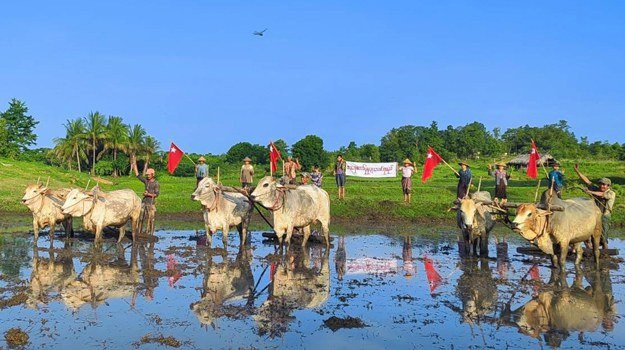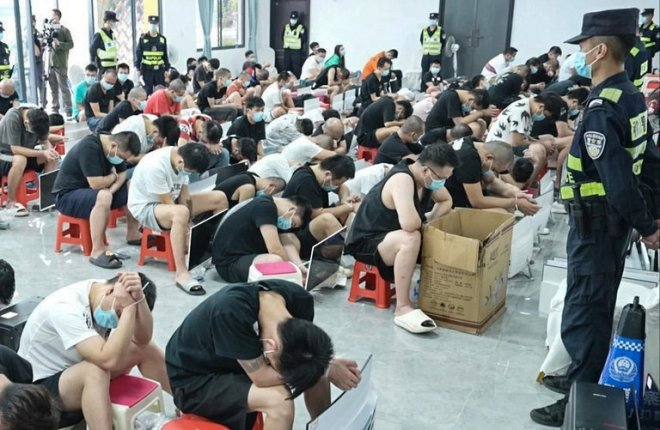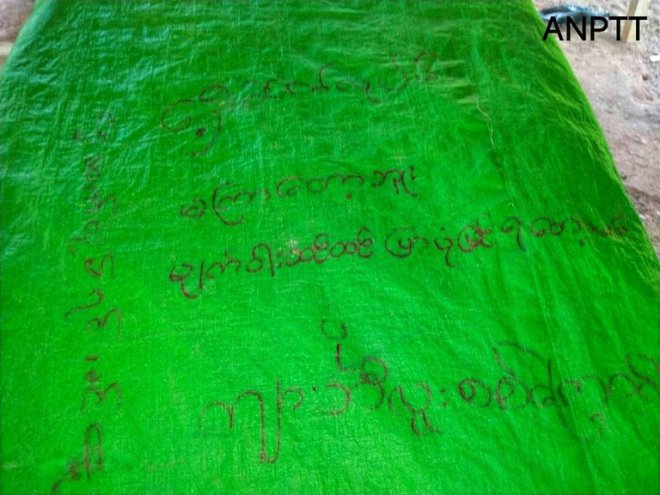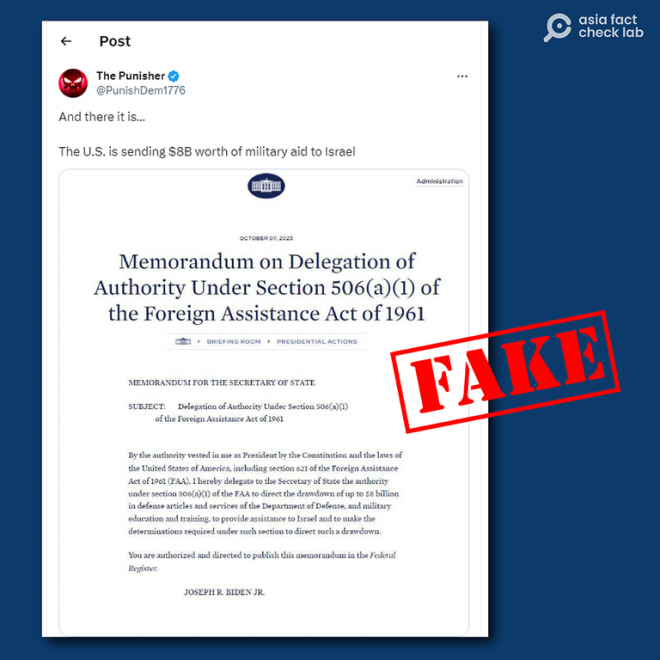Fashion show at EU's Parliament draws attention to forced labor in apparel industry
When Louise Xin, the Chinese-Swedish award-winning fashion designer and human rights activist, visited the European Parliament last June, she received an unusual request from the body: Would she host a fashion show in the conference hall to draw attention to forced labor in the fashion industry?
Xin, 28, happily obliged, and held the show on March 28 – the first ever inside the parliament – featuring her eponymous rental only, non-sale couture brand.
Nine models of different ethnicities, including two Uyghur women who wore floor-length dresses made of etles, a silk fabric, walked around the center of a conference hall.
At the end of the show, Xin walked into the room holding the hands of Kazakh businesswoman Gulbahar Jelilova, who had been detained in a “re-education” camp in northwestern China’s Xinjiang region, and Nepalese former child laborer Nasreen Sheikh.
“Clothes are something we wear every day, every single one of us, but they are so much more than just pieces of fabric,” Xin told the attendees, including EU lawmakers. “They’re telling stories about who wears them and makes them.”
“The painful story about a child labor survivor, Nasreen, and a camp survivor, Gulbahar, are two of the millions — two women from two different parts of the world — where we all gather here today,” Xin said. “And united with all of you guys, we will write a new future for those who wear them and make their clothes.”
Forced labor affects at least 27.6 million people worldwide, most of which occurs in the private economy, according to rights groups.
But in China, some of an estimated 1.8 million Uyghurs and other Turkic minorities held in state-run camps were forced to work in local factories producing cotton, yarn and hair products used in braiding and weaving.
EU forced labor legislation
The fashion show came as members of the European Parliament and the Council of the European Union gathered to discuss and agree on a proposal to ban products made with forced labor.
The European Commission issued the proposal last September to prohibit the import and export of goods made with forced labor, including child labor, on the EU market, without targeting specific companies or industries.
Representatives of labor rights groups and other NGOs attended a panel after the fashion show to discuss how the European Parliament could implement effective forced labor legislation.
“Hopefully, the body will vote on the proposal between February and April of next year," said Jewher Ilham, human rights activist and daughter of prominent jailed Uyghur scholar Ilham Tohti.
“The current forced labor resolution that was introduced doesn’t have a regional focus, which may result in the failure to block goods that are made by state- forms of forced labor,” said Ilham, a coordinator at the Worker Rights Consortium based in Washington, D.C.
Labor rights groups suggested that the EU be transparent and make publicly available import data, as does the United States, so that civil society groups and researchers can help identify which products or shipments are linked to forced labor, she added.
In June 2022, members of the European Parliament passed a resolution calling the Chinese government’s systemic human rights abuses against Uyghurs “crimes against humanity and a serious risk of genocide.”
About six months earlier, in December 2021, U.S. President Joe Biden signed into law the Uyghur Forced Labor Prevention Act to ensure that goods made with forced labor in China’s Xinjiang Uyghur Autonomous Region, where state- forced labor is widespread, do not enter the American market.
Loss of Chinese business
Jelilova, the Kazakh businesswoman, told Radio Free Asia that she was deeply enthused that Xin, as a person of Chinese descent, brought in models from around the world to highlight China’s use of Uyghur forced labor and the government"s repressive policies in Xinjiang.
“Louise told me that she’s lost a big share of her business for taking a stand on Uyghur issues,” said Jelilova, who was honored as “Uyghur Advocate of the Year 2021” by U.S.-based Justice for All, a Muslim advocacy group, for her work drawing international attention to the abuses that took place in Xinjiang’s vast camp network.
“Many Chinese people who had asked her to design clothes no longer do that anymore,” Jelilova added. “But she’s still helping Uyghurs without any fear. She has been showing her moral courage by designing clothes to fight against forced labor.”
The fashion show at the European Parliament wasn’t the first time that Xin has used couture made from up-cycled and repurposed material to call attention to the plight of the Uyghurs.
She dedicated her first digital fashion show in August 2021 to the Uyghur community to raise awareness about the genocidal policies targeting the predominantly Muslim minority group.
Translated by RFA Uyghur. Edited by Roseanne Gerin and Malcolm Foster.
[圖擷取自網路,如有疑問請私訊]
Xin, 28, happily obliged, and held the show on March 28 – the first ever inside the parliament – featuring her eponymous rental only, non-sale couture brand.
Nine models of different ethnicities, including two Uyghur women who wore floor-length dresses made of etles, a silk fabric, walked around the center of a conference hall.
At the end of the show, Xin walked into the room holding the hands of Kazakh businesswoman Gulbahar Jelilova, who had been detained in a “re-education” camp in northwestern China’s Xinjiang region, and Nepalese former child laborer Nasreen Sheikh.
“Clothes are something we wear every day, every single one of us, but they are so much more than just pieces of fabric,” Xin told the attendees, including EU lawmakers. “They’re telling stories about who wears them and makes them.”
“The painful story about a child labor survivor, Nasreen, and a camp survivor, Gulbahar, are two of the millions — two women from two different parts of the world — where we all gather here today,” Xin said. “And united with all of you guys, we will write a new future for those who wear them and make their clothes.”
Forced labor affects at least 27.6 million people worldwide, most of which occurs in the private economy, according to rights groups.
But in China, some of an estimated 1.8 million Uyghurs and other Turkic minorities held in state-run camps were forced to work in local factories producing cotton, yarn and hair products used in braiding and weaving.
EU forced labor legislation
The fashion show came as members of the European Parliament and the Council of the European Union gathered to discuss and agree on a proposal to ban products made with forced labor.
The European Commission issued the proposal last September to prohibit the import and export of goods made with forced labor, including child labor, on the EU market, without targeting specific companies or industries.
Representatives of labor rights groups and other NGOs attended a panel after the fashion show to discuss how the European Parliament could implement effective forced labor legislation.
“Hopefully, the body will vote on the proposal between February and April of next year," said Jewher Ilham, human rights activist and daughter of prominent jailed Uyghur scholar Ilham Tohti.
“The current forced labor resolution that was introduced doesn’t have a regional focus, which may result in the failure to block goods that are made by state- forms of forced labor,” said Ilham, a coordinator at the Worker Rights Consortium based in Washington, D.C.
Labor rights groups suggested that the EU be transparent and make publicly available import data, as does the United States, so that civil society groups and researchers can help identify which products or shipments are linked to forced labor, she added.
In June 2022, members of the European Parliament passed a resolution calling the Chinese government’s systemic human rights abuses against Uyghurs “crimes against humanity and a serious risk of genocide.”
About six months earlier, in December 2021, U.S. President Joe Biden signed into law the Uyghur Forced Labor Prevention Act to ensure that goods made with forced labor in China’s Xinjiang Uyghur Autonomous Region, where state- forced labor is widespread, do not enter the American market.
Loss of Chinese business
Jelilova, the Kazakh businesswoman, told Radio Free Asia that she was deeply enthused that Xin, as a person of Chinese descent, brought in models from around the world to highlight China’s use of Uyghur forced labor and the government"s repressive policies in Xinjiang.
“Louise told me that she’s lost a big share of her business for taking a stand on Uyghur issues,” said Jelilova, who was honored as “Uyghur Advocate of the Year 2021” by U.S.-based Justice for All, a Muslim advocacy group, for her work drawing international attention to the abuses that took place in Xinjiang’s vast camp network.
“Many Chinese people who had asked her to design clothes no longer do that anymore,” Jelilova added. “But she’s still helping Uyghurs without any fear. She has been showing her moral courage by designing clothes to fight against forced labor.”
The fashion show at the European Parliament wasn’t the first time that Xin has used couture made from up-cycled and repurposed material to call attention to the plight of the Uyghurs.
She dedicated her first digital fashion show in August 2021 to the Uyghur community to raise awareness about the genocidal policies targeting the predominantly Muslim minority group.
Translated by RFA Uyghur. Edited by Roseanne Gerin and Malcolm Foster.
[圖擷取自網路,如有疑問請私訊]
|
本篇 |
不想錯過? 請追蹤FB專頁! |
| 喜歡這篇嗎?快分享吧! |
相關文章
AsianNewsCast


















